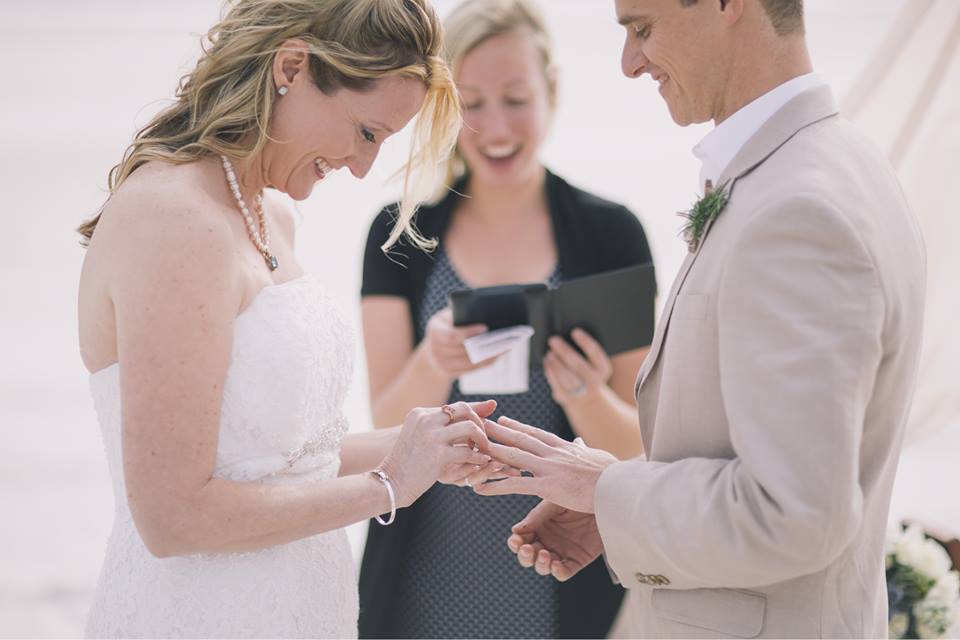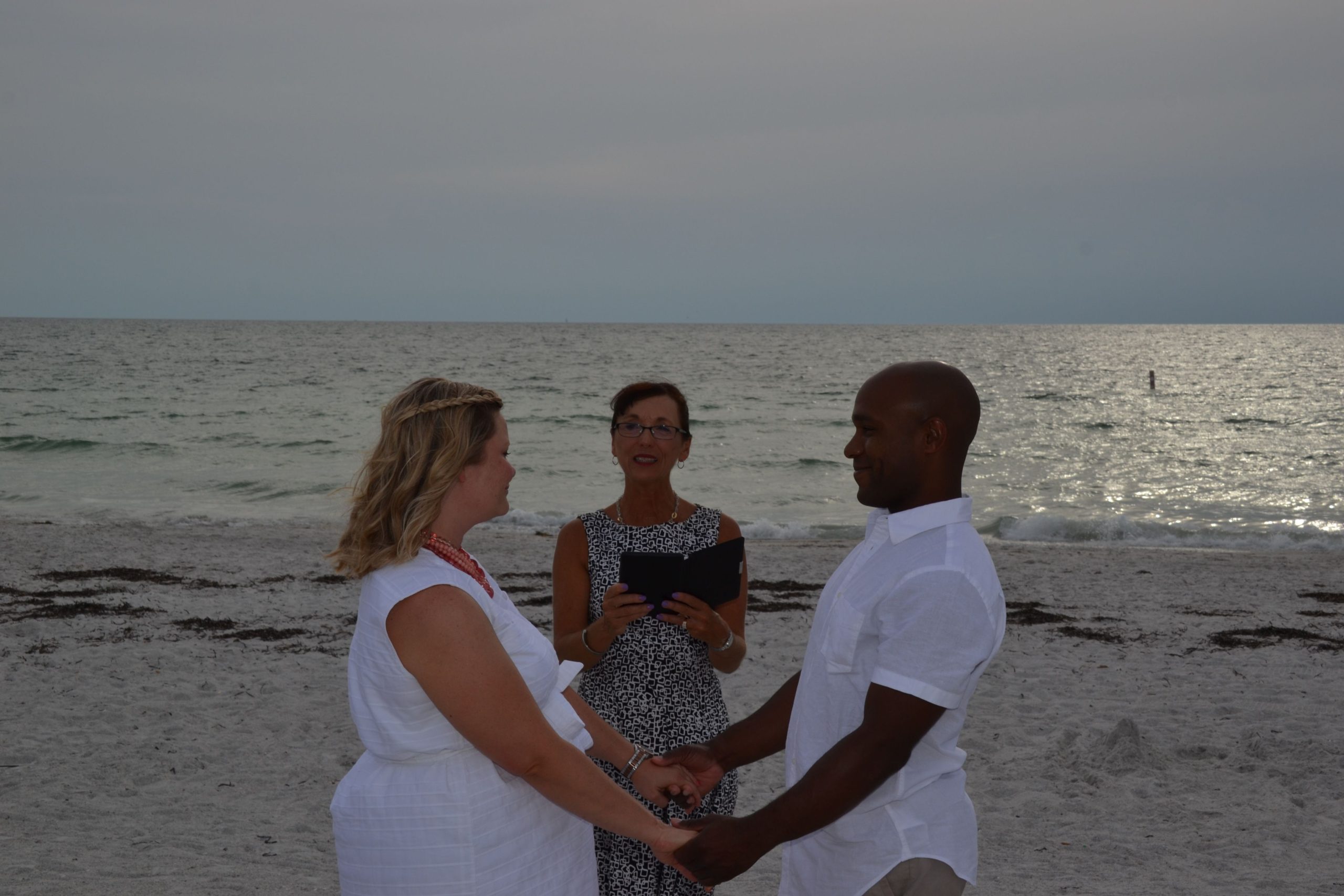Your wedding ceremony is personal! It’s the time where you stand in front of your family and friends and vow to be with someone for the rest of your life– a very special and personal moment. So why wouldn’t there be different types of wedding ceremonies?

Ring exchange during a Cape San Blas wedding ceremony. Photo by Black & Hue Photography.
When we started officiating weddings in 2001 our goal was to provide all couples with a way to celebrate their love. We when we say, “Let us celebrate your love with the wedding ceremony of your dreams!” and we mean it. Whether you simply want a Notary Public to legalize your marriage license, have recently been divorced, are an interfaith couple, same-sex, young, or old we are more than happy to work with you on your wedding ceremony.
These are the most common types of wedding ceremonies:
- Civil or secular– there will be no mention of God in any form and no blessing will be given. Added readings can range from humorous to romantic to philosophical. Ceremony will include wording about family, love, commitment, and values shared by the couple.
- Spiritual- this is broad because spiritual can mean different things for different people. Some people are spiritual in nature, in leaders or teachers, or ancestors. Some couples chose to have a spiritual ceremony to share variations of their faiths like Christian and Jewish. A spiritual ceremony would typically be for those who follow Buddhism, Hinduism, Taoism, Shinto, Zoroastrianism or Sikhism. Spiritual ceremonies are neat because they can be written to fit your spiritual following. Some couples will have mentions of God and blessings included in their spiritual ceremony and other’s do not.
- Interfaith or intercultural- this is when a couple from two difference religious gets married. One time I officiated a wedding that included Christian bible readings, a reading from the Velveteen Rabbit, and a Jewish glass breaking at the end of the ceremony. Interfaith weddings can sometimes take a little bit of research to figure out the best way to blend the traditions, but end up wonderful because both families are happy.
- Religious- you can have a religious wedding and not be married in a church. Religious wedding ceremonies can be performed anywhere that makes you happy- a park, beach, venue, garden, or one’s home. Although we are not affiliated with a church we are happy to officiate a religious wedding ceremonies. Only a Catholic priest can perform a Catholic mass and discuss Catholic married life wedding ceremony.
- Vow renewal- the couple is already married and is having a celebratory vow renewal. We love vow renewals. Vow renewals can be planned, a anniversary surprised, or super of the moment.
- Commitment ceremony-this is not a legally binding marriage. Sometimes couples request to commitment ceremony as a way to pledge their love to one another.
All of these ceremonies can be adjusted to fit your personal wedding ceremony preferences. For example adding a unity sand ceremony, include a hand fasting, or have your favorite poem read. Your wedding ceremony should be exactly as you want. When planning your wedding ceremony you’ll get a lot of feedback from others. Some will be helpful and others not. Remember it’s your wedding ceremony so do what makes you happy.
When we begin working with a new couple, we encourage them to have a wedding ceremony will reflect reflects their personalities, family traditions, spiritual, religious, or non-religious beliefs. We guide them through the different types of wedding ceremonies and are always open to new ideas.

Celtic Hand Fasting ceremony picture by Megan Pitts

